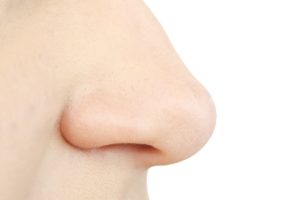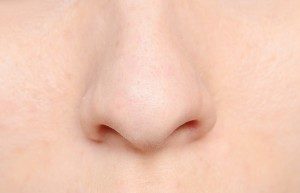![]() How's your sense of smell? Hopefully, it's good. A recent study found that a loss of smell is linked to 139 diseases or medical conditions!
How's your sense of smell? Hopefully, it's good. A recent study found that a loss of smell is linked to 139 diseases or medical conditions!
The loss of smell (olfactory dysfunction) appears to be an early sign of all sorts of neurological and bodily diseases. The researchers found that the 139 medical conditions are also associated with inflammation (that olfactory loss and inflammation co-occur).
For example, loss of a sense of smell is an early symptom of both Alzheimer's disease and Parkinson's disease. It can be found in youth long before they exhibit symptoms of schizophrenia. It also precedes depression, major cardiac events, multiple sclerosis, early death, and even memory and neurological impairment.
Interestingly, the study authors point out that there is research showing that pleasant scents can decrease inflammation, and thus possibly improve brain health, including memory. The pleasant scents can be viewed as "therapeutic olfactory stimulation" or "olfactory enrichment". About 20 studies have been done showing that increasing olfactory stimulation (sniffing various scents, including essential oils) can improve memory.
Research done on animals shows that some scents have anti-inflammatory action, for example, eucalyptol, lavender, ginger, carvacrol (found in oregano, thyme, and sage), Shirazi thyme, limonene, and mango. Diet can also have an effect, as well as environmental factors (e.g., smoking, some medications, stress, alcoholism, nasal passage blockages).
From Science Daily: Smell loss linked to 100-plus diseases
Researchers from the Charlie Dunlop School of Biological Sciences, in collaboration with The Oxford Research Centre in the Humanities, reveal a powerful link between olfactory loss and inflammation in a staggering 139 medical conditions. This research -- led by professor emeritus Michael Leon, and researchers Cynthia Woo and Emily Troscianko -- emphasizes a little-known but potentially life-altering connection: the role our sense of smell plays in maintaining our physical and mental health. ...continue reading "Loss of a Sense of Smell and Diseases"

 A
A  Do you have a good sense of smell and are also good at navigation? A
Do you have a good sense of smell and are also good at navigation? A  The following is a study with weird results, really weird results. And it makes me think of all the times I've heard people joke: "just smelling food makes me gain weight", because we all knew it wasn't true. But what if it was true? .... The results of this study done in mice are that actually smelling the food one eats results in
The following is a study with weird results, really weird results. And it makes me think of all the times I've heard people joke: "just smelling food makes me gain weight", because we all knew it wasn't true. But what if it was true? .... The results of this study done in mice are that actually smelling the food one eats results in